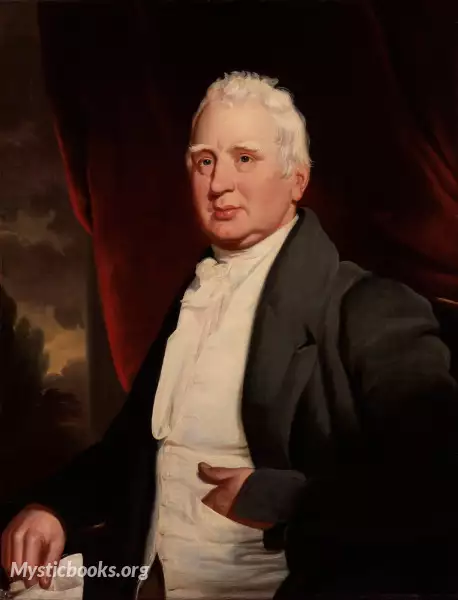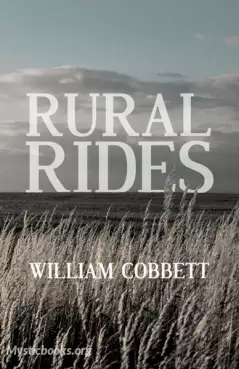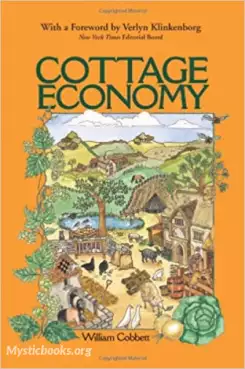
Timeline
Title
Country/Nationality
William Cobbett
William Cobbett was an English pamphleteer, journalist, Member of Parliament and farmer born in Farnham, Surrey, one of a popular agrarian faction seeking to reform Parliament, abolish "rotten boroughs", restrain wanton foreign activity and raise wages, to promote peace and ease poverty among farm labourers and smallholders. He backed lower taxes, saving, reversing commons enclosures and resisting the 1821 gold standard. He sought an end to borough-mongers, sinecurists and overpaid bureaucratic "tax-eaters" and stockbrokers, and typecast British Jews in a similar way. Early in life he was a soldier and devotee of king and country, but later pursued a radicalism that helped to produce the Reform Act 1832 and gain him one of two seats in Parliament for the new borough of Oldham. He urged Catholic emancipation. He saw British agriculture and other economic output geographically. His polemics range from political reform to religion. His best known book is Rural Rides (1830, still in print). He argued against Malthusianism, saying economic betterment could support global population growth.
William Cobbett was born in Farnham, Surrey, on 9 March 1763, the third son of George Cobbett, a farmer and publican, and Anne Vincent. He was taught to read and write by his father and he started working from an early age. He later said: "I do not remember a time when I did not earn my living. My first occupation was, driving small birds from the turnip seed, and the rooks from the peas." He worked as a farm labourer at Farnham Castle, and also worked briefly as a gardener in the King's garden at Kew. His rural upbringing gave him a lifelong love of gardening and hunting.
Cobbett had developed an animosity towards some corrupt officers and gathered evidence on the matter while in New Brunswick, but his charges against them were ignored. He wrote The Soldier's Friend (1792), protesting against the low pay and harsh treatment of enlisted men in the British army. Sensing that he was about to be indicted in retribution, he fled to France in March 1792 to avoid imprisonment. Cobbett had intended to stay a year to learn the French language, but he found the French Revolution and the French Revolutionary Wars in progress, and so he sailed for the United States in September 1792.
He was first at Wilmington, then Philadelphia by the spring of 1793. Cobbett initially prospered by teaching English to Frenchmen and translating texts from French into English. He later claimed that he had become a political writer by accident: during an English lesson one of his French students read aloud from a New York newspaper the addresses of welcome that the Democrats had sent to Joseph Priestley upon his arrival in America, along with Priestley's replies. His student applauded the anti-British sentiments they contained and he quarrelled with Cobbett, who then resolved to "write and publish a pamphlet in defence of my country." His Observations on the Emigration of Dr Priestley, which was published anonymously in 1794, was a violent attack on the radical Priestley.
Cobbett's American writings were reprinted in Britain, with John Wright acting as his agent. In August 1800 Windham invited Cobbett to dinner, where he met the Prime Minister, William Pitt, and contributors to the Anti-Jacobin, including George Canning. Pitt's government offered Cobbett the editorship of a government newspaper, but he chose to remain independent. His own paper, The Porcupine, bearing the motto "Fear God, Honour the King", started up on 30 October 1800, but without success, and he sold his interest in it in 1801. Less than a month later, however, he started the Political Register, a weekly newspaper that appeared almost every week from January 1802 until 1835, the year of Cobbett's death. Windham and French Laurence had suggested the idea of a weekly newspaper to Cobbett and Windham raised the money to fund it by private subscription.
Cobbett was found guilty of treasonous libel on 15 June 1810, after objecting in The Register to the flogging at Ely of local militiamen by Hanoverians. During his two years' imprisonment in Newgate Prison, he wrote the pamphlet Paper Against Gold, warning of the dangers of paper money, and many essays and letters. On his release, a dinner in his honour in London was attended by 600 people and directed by Sir Francis Burdett, who like Cobbett was a strong advocate of parliamentary reform.
During later life Thomas Macaulay, a fellow MP, remarked that Cobbett's faculties were impaired by age; indeed that his paranoia had reached insanity. From 1831 until his death, Cobbett managed a farm named Ash in the village of Normandy, Surrey, a few miles from his birthplace at Farnham. Cobbett died there after a brief illness in June 1835 and was buried in the churchyard of St Andrew's Church, Farnham.
Books by William Cobbett

Rural Rides
Rural Rides is the book for which the English journalist, agriculturist and political reformer William Cobbett is best known. At the time of writing in the early 1820s, Cobbett was a radical anti-Corn Law campaigner, newly returned to England from a...

Cottage Economy
Cottage Economy is a book by William Cobbett, first published in 1821, which covers many practical instructions such how to bake bread, brew beer, keep livestock and "other matters deemed useful in the conducting of the Affairs of a Labourer's Family...